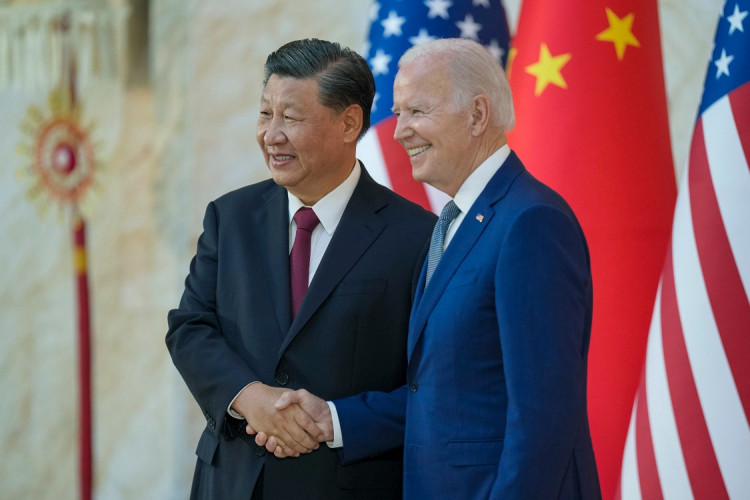In a crucial diplomatic engagement, U.S. President Joe Biden and Chinese leader Xi Jinping are set to meet amid a backdrop of significant military, economic, and geopolitical challenges. This meeting, the first in-person interaction between the two leaders in over a year, comes as both superpowers grapple with issues ranging from Taiwan's status and the South China Sea disputes to the ongoing Israel-Hamas conflict, North Korea's dynamics, and pressing human rights concerns.
Strategic Meeting Amid Global Uncertainties
Scheduled to take place in San Francisco during the Asia-Pacific Economic Cooperation (APEC) summit, this encounter aims to ease the escalating friction between the U.S. and China. However, expectations for substantial progress on the deep-seated differences remain measured.
As both leaders arrive in a city buzzing with demonstrators and diplomatic activity, the stakes are high. Biden seeks to leverage his longstanding rapport with Xi, developed over a dozen years, to steer the increasingly hostile relationship towards a more stable trajectory. The San Francisco setting, chosen for its security and serenity, offers a conducive environment for candid discussions.
Focus Areas and Potential Outcomes
Key topics on the agenda include contentious issues such as Taiwan's autonomy, the militarization of the South China Sea, and the broader implications of Russia's actions in Ukraine. Additionally, the talks are expected to cover the repercussions of North Korea's alignment with Russia and various human rights issues.
From a U.S. standpoint, the meeting is also an opportunity to address concerns about China's alleged interference in foreign elections, the detention of American citizens, and the rampant production of fentanyl in China contributing to the opioid crisis in the U.S. Biden is likely to press Xi to leverage China's influence on Iran to prevent escalatory actions in the Middle East, particularly in the context of the Israel-Hamas conflict.
Economic Undercurrents and China's Stance
China's economic struggles add a layer of complexity to the discussions. The slowdown in growth, high youth unemployment, and challenges in the housing sector paint a grim picture of the Chinese economy. This economic turbulence raises questions about whether it will lead to a recalibration of China's domestic and foreign policies.
Analysts are watching closely to see if economic pressures might temper China's geopolitical ambitions or, conversely, fuel a surge in nationalism as part of Xi's increasingly authoritarian governance approach. The U.S. approach aims to underscore that China's economic challenges are self-inflicted, steering clear of narratives that could position the U.S. as exploiting China's vulnerabilities.
Military Communications and Fentanyl Crackdown
Among the anticipated outcomes of the Biden-Xi meeting are tangible steps to restore military-to-military communications, a crucial element in preventing inadvertent conflict escalations. Additionally, a significant focus will be on a joint crackdown on the fentanyl trade, highlighting a shared commitment to addressing this critical public health issue.
As the world watches, the Biden-Xi summit represents a pivotal moment in U.S.-China relations, with implications that extend far beyond their bilateral ties. The discussions in San Francisco could set the tone for future engagement between the two nations, shaping the geopolitical landscape for years to come.





